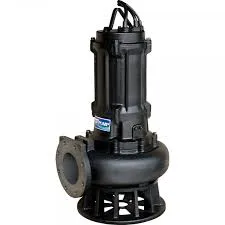English
- Afrikaans
- Albanian
- Amharic
- Arabic
- Armenian
- Azerbaijani
- Basque
- Belarusian
- Bengali
- Bosnian
- Bulgarian
- Catalan
- Cebuano
- Corsican
- Croatian
- Czech
- Danish
- Dutch
- English
- Esperanto
- Estonian
- Finnish
- French
- Frisian
- Galician
- Georgian
- German
- Greek
- Gujarati
- Haitian Creole
- hausa
- hawaiian
- Hebrew
- Hindi
- Miao
- Hungarian
- Icelandic
- igbo
- Indonesian
- irish
- Italian
- Japanese
- Javanese
- Kannada
- kazakh
- Khmer
- Rwandese
- Korean
- Kurdish
- Kyrgyz
- Lao
- Latin
- Latvian
- Lithuanian
- Luxembourgish
- Macedonian
- Malgashi
- Malay
- Malayalam
- Maltese
- Maori
- Marathi
- Mongolian
- Myanmar
- Nepali
- Norwegian
- Norwegian
- Occitan
- Pashto
- Persian
- Polish
- Portuguese
- Punjabi
- Romanian
- Russian
- Samoan
- Scottish Gaelic
- Serbian
- Sesotho
- Shona
- Sindhi
- Sinhala
- Slovak
- Slovenian
- Somali
- Spanish
- Sundanese
- Swahili
- Swedish
- Tagalog
- Tajik
- Tamil
- Tatar
- Telugu
- Thai
- Turkish
- Turkmen
- Ukrainian
- Urdu
- Uighur
- Uzbek
- Vietnamese
- Welsh
- Bantu
- Yiddish
- Yoruba
- Zulu
Telephone: +86 13120555503
Email: frank@cypump.com
Sep . 22, 2024 07:42 Back to list
residential sewer pump
Understanding Residential Sewer Pumps A Homeowner's Guide
Residential sewer pumps, also known as sewage ejector pumps, play a crucial role in managing wastewater in homes, especially those situated at lower elevations. When gravity alone isn't enough to direct waste to the municipal sewer system, these powerful pumps come into play, ensuring that sewage is effectively transported away from your property.
What is a Residential Sewer Pump?
A residential sewer pump is a type of submersible pump that helps move sewage from bathrooms, laundry rooms, and kitchens to the main sewer line. Unlike regular sump pumps, which are primarily designed to remove groundwater, sewer pumps are specifically engineered to handle solid waste and wastewater. Typically located in a pit or basin called a sewage basin, these pumps kick into action when the wastewater reaches a certain level.
How Does It Work?
When wastewater flows into the sewage basin, it fills the pit until it reaches a predetermined level. At this point, the float switch activates the sewer pump, which then begins to grind and pump the waste through a discharge pipe and into the sewer system. These pumps are designed to handle solids up to a certain size, usually around 2 inches, effectively preventing blockages in the plumbing.
Why is it Important?
residential sewer pump

For homes that are below the level of the sewer line, a residential sewer pump is essential to avoid sewage backup and potential health hazards. Without this system, homeowners would be at risk of overflowing toilets and drains, leading to unsanitary conditions and costly repairs. Furthermore, a sewer pump ensures that waste is properly disposed of, protecting both the home and the environment.
Maintenance Tips
To ensure your sewer pump operates efficiently, regular maintenance is key. Here are a few tips
1. Check the Float Switch Ensure that the float switch moves freely and is not obstructed by debris. 2. Inspect the Pump Periodically remove the pump for inspection and cleaning, especially if you notice strange noises or a decrease in pumping efficiency. 3. Prevent Clogs Be mindful of what goes down the drains. Avoid flushing items like diapers, feminine hygiene products, or excessive grease, as these can damage the pump or create clogs.
Conclusion
Investing in a residential sewer pump is essential for homes reliant on gravity-deficient drainage systems. By understanding its function and maintaining it properly, homeowners can protect their property from sewage-related issues, ensuring a safe and hygienic living environment. Whether you're building a new home or upgrading your existing system, a reliable sewer pump is an investment you won't regret.
-
ISG Series Vertical Pipeline Pump|High Efficiency&Low Noise
NewsJul.29,2025
-
ISG Series Vertical Pipeline Pump - Chi Yuan Pumps Co., LTD.|High Efficiency, Energy Conservation, Low Noise
NewsJul.29,2025
-
ISG Series Vertical Pipeline Pump-Chi Yuan Pumps Co., LTD.|High Efficiency&Energy-Saving
NewsJul.29,2025
-
ISG Series Vertical Pipeline Pump - Chi Yuan Pumps Co., LTD. | High Efficiency, Energy-Saving
NewsJul.29,2025
-
ISG Series Pipeline Pump - Chi Yuan Pumps | High Efficiency, Low Noise
NewsJul.29,2025
-
High-Efficiency Vertical Slurry Pumps for Mining & Industry Solutions
NewsJul.29,2025










